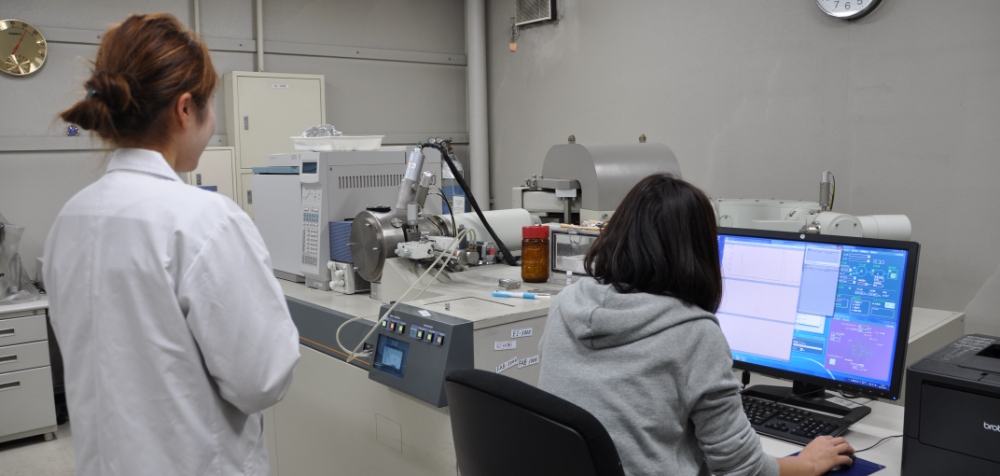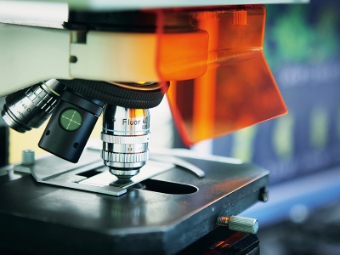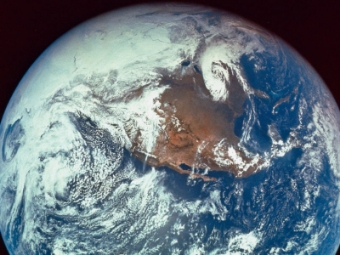Faculty of Science
Pioneering the future through science.
The Faculty of Science aims to deepen this learning by studying the broad laws of nature and participating in research that extends the frontiers of knowledge in order to bring environmentally conscious and harmonious progress to society, as well as to return the results obtained to society. We hope that each student will gain a rich source of life that will enable him or her to meet the demands of a diverse modern society.

Course Outline
Mathematics and Mathematical Informatics Course
Mathematics has developed as a theory to explore phenomena inherent in itself, as a basic science to provide a foundation for various fields other than mathematics, or as a sophisticated tool for applications.
In particular, today we are in the midst of a remarkable development of information science, and it is important to properly utilize and further develop this mathematically.
There are also high expectations for the use and development of advanced mathematics in today’s society.
The Mathematics and Mathematical Informatics Course aims to develop human resources who can contribute to society by playing a role in the application and development of mathematics and information science.

Physics Course
Develop a material worldview and take on the challenges of humanity.
Physics is a discipline that attempts to logically understand the nature of nature and has made remarkable progress, especially since the 20th century, in elucidating the mechanisms of nature. Its application has facilitated the development of technology and has made a tremendous contribution to modern civilization. In science and technology, the 21st century will continue to play a leading role in the invention of new materials, the development of information processing equipment and communications, and space exploration. In the physics course, education and research are conducted with the goal of understanding the various properties and applications of elementary particles, which are the source of matter, and of the matter composed of them, as well as various phenomena in the universe. In terms of education, our motto is especially “connection with high school, steady build-up of fundamentals” and “flexible applied skills”. In addition, astronomy education is enhanced through a tie-up with the Center for the Study of Space and Evolution.

Chemistry Course
Develop a material worldview and take on the challenges of humanity.
Chemistry is a science that deals with the structure, properties, and changes of matter at the atomic and molecular level. New materials and new functions developed with the progress of our understanding of materials and technology since the modern era have enriched our lives and supported civilization. Today, chemistry plays a broad and significant role in areas ranging from medicine and pharmaceuticals to global structure, material cycles, and energy issues. There is a never-ending need for “chemistry” in society, requiring specialized knowledge, laboratory skills, and skills related to the handling and safety of chemicals. Through a systematic curriculum of lectures, experiments, and assignments, the Chemistry Course cultivates standard knowledge and skills in chemistry, as well as the ability to understand, explore, and apply issues, and to express and communicate effectively in a variety of fields.

Biology Course
Comprehensive understanding of life phenomena from the molecular level to the ecosystem.
The research areas of the biology course faculty consist of three main areas. Each of these areas conducts research from its own perspective as well as research in areas that border on other areas, and as a whole, research is conducted at various levels, from molecules to individuals or ecosystems. This research system is directly applied to the education of students.
This means that students can learn about biology from different aspects, from molecules to ecosystems, microorganisms, and plants and animals, thereby gaining a rich knowledge of nature and life. It also allows students to gain advanced specialized knowledge and a comprehensive understanding of the relationship between nature and humans.

Earth Science Course
Learning about the Earth’s past, learning about the Earth’s present, and thinking about the Earth’s future.
There is still much about the Earth, the planet we live on, that we do not know. In the Earth Science course, research and education on the Earth are conducted from a variety of perspectives and methods, with keywords such as Earth history, geology, fossils, rocks and minerals, the Earth and planetary interiors, and the marine environment. The curriculum includes a wide range of field studies and laboratory experiments, and students can acquire a wealth of knowledge about the Earth by studying geology from a variety of perspectives. After graduation, students can use what they have learned in the Earth Science course to become geological or environmental consultants, technical public servants, or Earth Science teachers, or they can enter graduate school to further their studies of the Earth.


